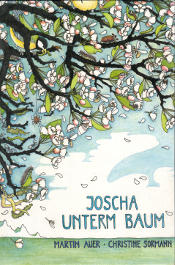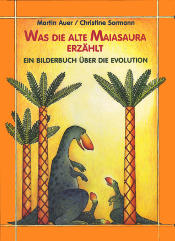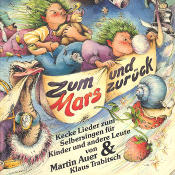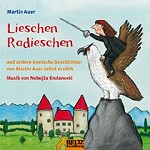Martin Auer: The Strange War, Stories for Peace Education

Star Snake
Please share if you want to help to promote peace!
Translated by Kim Martin Metzger
Reviewed by Martin Auer
Bücher und CDs von Martin Auer

In meinem Haus in meinem Kopf
Gedichte für Kinder

Die Prinzessin mit dem Bart
 Joscha unterm Baum
Joscha unterm Baum

Was die alte Maiasaura erzählt

Die Erbsenprinzessin

Der wunderbare Zauberer von Oz - Hörbuch zum Download

Die Jagd nach dem Zauberstab, Roman für Kinder - Hörbuch zum Download
 Der seltsame Krieg
Der seltsame KriegGeschichten über Krieg und Frieden

Zum Mars und zurück - Lieder
 Lieblich klingt der Gartenschlauch - Lieder
Lieblich klingt der Gartenschlauch - Lieder

Lieschen Radieschen und andere komische Geschichten - CD
Here I am. I am dancing. We dance in a long line, painted and adorned in honor of the God. Soon we will be with Huitzilopochtli; soon we will escort the sun in the sky. We were warriors, now we are prisoners. In a long line we dance, and up front the High Priests are standing. We dance in a long line, and one after the other of us passes away, as a sacrifice to the Gods. Soon they will push the knife made of black rock into my breast too. My blood will flow over the altar, and they will cut out my heart. My blood is nourishment for the gods. My blood is nourishment for Huitzilopochtli, the sun. I dance. They gave me pulque to drink. Now I feel light and I dance. At first I was sad that it wasn’t I who had made a prisoner of an enemy. But now I am light: through me the Earth will be saved, my sacrifice will appease the Gods so that they will not destroy the Earth. I will rise to Huitzilopochtli; I will travel with him in the sky. And then I will become a hummingbird, as will all brave warriors who fall in battle, who are sacrificed in battle, and will fly from flower to flower and always be happy as long as the Earth exists. That’s the way it has always been, and that’s the way it must be.
I dance and I’m getting closer and closer to the altar. I dance, and while I’m dancing, I remember:
I was born on day 1 of the month of Ocelotl, and so fate predetermined me to die as a prisoner of war. When I came into this world, the midwife said to me: "Dearest son, know that your house is not the house of your birth, for you are a warrior, you are a Quecholli-bird, and the house where you came into this world is only a nest. You are destined to refresh the sun with the blood of your enemies and to feed the Earth with their bodies." In this manner, all boys are greeted.
If I had been a girl, she would have said, "You have to be in the house just as the heart is in the body. You mustn’t leave the house, you have to be like the ash in the stove."
Many speeches were held at my birth. Relatives and friends came, and the astrologer priest was asked to read the sacred calendar, which foretells one’s destiny. He set the day of my immersion, and on this day I was sprinkled with water many times. And the midwife said the words: "Take and receive because you will live on water on this Earth, you grow and become verdant from water; water gives us what we need to live." Then they chose the name Citlalcoatl for me, Star Snake.
For eight years I lived in my father’s house. As soon as I could walk and speak, I had to fetch water and wood and go with my father to market. Later I learned to fish and sail; my sisters, however, learned spinning and weaving, swept the house, and ground corn on the grinding stone. When I was eight years old, my father sent me to the calmecac, the temple school, not to the ordinary warrior school. "Listen, my son," he said to me. "You will reap neither honor nor respect. You will be ignored, despised, and degraded. Every day you’ll cut agave thorns to do penance. You’ll have to prick yourself with the thorns and give your blood as a sacrifice, and at night they will wake you up in order for you to bathe in cold water. Steel your body in the cold, and when the fasting time comes, be sure not to break it, and don’t let anyone notice any weakness during the fasting and the penance exercises."
I learned to be a man in the temple school. They demanded sacrifice and self-denial. At night, in the mountains, we had to offer incense and our blood to the gods. During the day we had to work very hard in the temple fields. There was severe punishment for even the smallest infraction. Sometimes I cried and thought how hard it is to be a warrior and a man. But in time I became stronger. And I looked down on the boys who visited the ordinary warrior school. They had to chop wood and clean the water ditches and canals and farm in the community fields. But at sunset they all went to the cuicacalco, the house of song and danced and sang there until midnight and slept with girls they weren’t married to. They associated only with warriors whose actions they admired and wanted to imitate. They knew nothing of the higher things, of science, the arts, or the worship of the Gods.
We students of the calmecac were marked for higher duties. We could become priests or public officials. I learned self-discipline and tenacity in the temple school, but I also learned to speak and address people with decency, using the customs that prevail at the court of the king. I learned the correct way to treat public officials and judges. I also learned astronomy and the interpretation of dreams, the calculation of years and the astrological calendar. I learned to draw the signs and pictures for numbers and names and to decipher the writings of our ancestors. And I learned the sacred hymns of our people, the songs with which the Gods are honored and the songs that tell the history of the Aztecs. For we are a great and mighty people and are feared by all the peoples of the earth.
Long ago we moved away from Aztlán, our first homeland, from which we Aztecs get our name. The legends tell us that Aztlán was surrounded by water and that we lived there as fishermen. In the beginning we were poor. We clothed ourselves in animal skins and had nothing but arrows and bows and targets for our spears. We were no better than the forest people who live to the north of our empire. Our leaders were four priests, who carried a shrine made of reeds. In the shrine was our God, Huitzilopochtli, who spoke to them and told them what we should do. After we had left Aztlán, our God commanded us to call ourselves the "moon people," the Mexicas.
If we found a good location, we stayed there a few years maybe. We sowed corn, but we didn’t always stay long enough to harvest it. Usually we lived from hunting deer, rabbits, birds, and snakes and on what grew in the earth.
But God promised us: "We shall settle down and establish ourselves, and we shall conquer all the peoples of the world; and indeed, I say to you, I shall make you lords and kings over everything in this world; and you shall rule and have countless vassals who will pay tribute to you, and they will give you innumerable and very precious stones, and gold, the feathers of the Quetzal-bird, emeralds, coral, amethysts. And you will wear them as jewelry. And you shall also have many kinds of feathers and cocoa and cotton in many colors. You shall experience all of this!"
Some say that Huitzilopochtli wasn’t our God from the beginning. Our tribe consisted of seven clans, and every clan held its own counsel and chose its own leader. And so, they say, each clan had its own god. But Huitzilopochtli was the greatest of them, the God of the sun and war. We wandered through many lands. Some were desolate and unpopulated, others were settled and we had to fight with the inhabitants. At some places we stayed longer and built a temple for our God. But we always felt driven to push on. We often had to leave our old people behind when we moved on. Sometimes a group from our tribe would separate and journey in a different direction. But others joined us: hunters, who had never lived in villages. Finally we came to the beautiful land between the mountains that today bears our name, the name Mexica. It is situated high above the two seas, protected and surrounded by mountains. Eternal spring prevails here. Only very seldom do we have a freeze, and when it is hot in the summer, the nights stay cool. Mountain springs supply the land with water, and in the valley lowlands there are five cool lakes, surrounded by villages and cities.
Once there was a mighty empire here, the Tula Empire, the city of the God Quetzalcoatl. But Quetzalcoatl, the God of the arts and the calendar, had abandoned his city, and the empire had fallen. The villages and cities of the lagoons were small, and the people had no single ruler. Every tribe lived for itself, with its own customs and its own gods.
We found a home at a place that was called Grasshopperhill, Chapultepec. There we chose for the first time a single leader for the whole tribe because we had had to fight too many wars with our neighbors and needed a chief who was experienced at war. Our neighbors were worried when we settled there and had children, and they attacked us. We defended ourselves well, but when they became too strong, they drove us away. Our chief was taken prisoner and sacrificed, and we had to surrender to our neighbors.
The rulers of Culhuacán gave us some land that was two hours away from their city and where it was crawling with snakes. We were supposed to live there because they were afraid of us and didn’t want us near them. But we caught the snakes and fried them because after our long wandering we were used to dealing with hardship. And that’s why they called us snake eaters. But they respected us because we had survived where no one else could have survived. So soon we were able to trade with them. They married our daughters and we married theirs, and we became related to each other. When they had wars with their neighbors, they called on us for help, and we made weapons and saved them. But when they saw how good we were as warriors, they became afraid of us and did not thank us. And then we waged war against them.
We had to flee and came to Acatzintlán. There we made rafts out of our shields and spears and floated over the water to a small island in the lake.
And then one of Huitzilopochtli’s priests had a vision and the god appeared to him and told him we should look for a nopal cactus upon which an eagle would be sitting. This place would be called the "place of the cactus fruit," Tenochtitlán, and there we should found a city. We searched and found the eagle sitting on the cactus, and he was eating a red cactus fruit, just as the sun eats the hearts of warriors. There we cut grass sod pieces from the earth and piled them into a hill upon which we erected a chapel made of reeds for Huitzilopochtli. "Here," said Huitzilopochtli to us, "here we shall make ourselves lords over all tribes, over their property, over their sons and daughters. Here they shall serve us and make tribute payments to us. At this place shall be founded the famous city that is destined to become the queen and mistress over all others – where we one day shall receive all kings and princes who must come here in order to pay homage to the mightiest city."
Thus we were once again in a place that was surrounded by water, like our old homeland, Aztlán.
As we had been accustomed from ancient times, we divided the city into the sacred number four. The city had four fourths, and every fourth was divided into boroughs that were called calpulli. Every calpulli belonged to a clan and had its own temple for the clan God. The land belonged to the whole clan, and it was only loaned to the individual families.
There was an abundance of birds and fish here. But because we had only a limited amount of land, we established gardens in the water. We wove walls out of reeds and between these walls we built layers of mud and water plants until they stuck out of the water. Then we could plant beans and corn on them.
After several years we quarreled, and part of our tribe moved away and founded Tlatelolco on a nearby island.
So we lived among reed and rush on our island and had neither wood nor stone. Two hundred years had passed since our departure from Aztlán.
We gave in to no one because our city lay on the borders of three regions, the regions of the Tepanecs, the Acolhuas, and the people of Culhuacán, all of whom had settled around the lake. We went to their markets and traded with them. We brought them fish, frogs, and other water animals, and they gave us wood and stones for our houses and temples.
When our chief and high priest, Tenoch, died, we asked the ruler of Culhuacán to give us a lord because the Mexicas were despised and unimportant, and we thought it would increase our stature to have the son of a great prince as our leader. We asked him to give us Acamapichtli as our lord, who was the son of a Mexican and of a Culhua princess. He was also related to the Acolhuas. Tlatelolco, on the other hand, chose a son of the chief of the Tepanecs to be their lord. In this way, there was kinship with all the tribes around the lake. Acamapichtli governed peacefully. He had us build houses, water gardens, and canals.
Of all the peoples around the lake, the Tepanecs were the most powerful. They waged wars against other cities, and when they had conquered them, they demanded tribute from them. When they became ever more powerful, we also had to pay tribute to them and march into war with them when they told us to.
When our chief, Acamapichtli, died, our leaders chose his son, Huitzilihuitl, Hummingbird Feathers, as his successor, and he married a granddaughter of the Tepanec chief. In this way our situation improved, and the Tepanecs had to respect us. Huitzilihuitl waged war with the southern lands, where there was an abundance of cotton. This is how the Mexicas got their first clothes made of cotton; before that they knew only rough fabrics made from the fibers of the agave. Then he conquered Cuauhtinchan, Chalco, Otumba, Tulancingo, and still more cities. He started the war with Texcoco.
His son was Chimalpopoca, who was chosen as the chief after him. He ended the war with Texcoco and conquered the city. The ruler of the Tepanecs handed the city over to the Mexicas, and they had to pay tribute to us. But still we had to pay tribute to the Tepanecs.
But when the ruler of the Tepanecs died, we no longer wanted to be their subjects. Our city had become bigger, and we no longer lived in huts, but built our houses of stone. We no longer wanted to serve the Tepanecs. To be sure, the little people, the farmers, were afraid of war because they had experienced the power of the Tepanecs. So the superiors – those were the relatives of the chief, the priests, and the leaders of the warriors – said: "If we have no success with this war, we’ll place ourselves in your hands. You can then take your revenge on us and let us rot in dirty cages." Thereupon the people answered: "And we promise to serve you and to work for you, to build your houses, and to recognize you as our true lords, if you should win this war."
So we joined forces with the Texcoco, against whom we had earlier fought wars, and now fought against the Tepanecs. We lay siege to their city for a hundred and fourteen days. Then we conquered them. Their ruler, Maxtla was sacrificed and his heart was cut out. Then he was buried, as is fitting for a ruler.
Now the Mexicas had captured a great deal of land. This land was now distributed, and in accordance with the agreement between the superiors and the people, the leaders and the superiors received the biggest share. The clans, however, received only very little land, only enough to be able to keep their temples. Some say, though, that there never was an agreement between the people and the superiors, and that the superiors had only invented it. The people said that was unjust, and the entire land used to belong to the whole tribe, and everybody had the same rights. But could they defend themselves? The warriors had won the war and expanded the empire. And who was supposed to be powerful in this land? The farmers, who pull a little corn out of the ground? Or the warriors, who expand the empire and make other tribes pay tribute. And who makes sure there are always prisoners who can be sacrificed at festivals, so that the Gods aren’t angry with us and don’t destroy the Earth?
When we were still wandering around as nomads and were poor and despised, then we all had the same rights, that’s true. Everyone was a warrior and a farmer at the same time. But how are we supposed to fight wars and conquer cities if everybody is saying his piece and everybody wants to be a counselor? And do you want the priests, the judges, and the public servants to dig up the soil too? How would they then be able to carry out their duties?
No, the arrangement is just: every young man does his war service. When the boy is ten years old, we cut his hair from his head, and only on the back of his neck remains a mane of hair. Whoever takes a prisoner for the first time, even if it is with the help of some of his comrades, he may cut the mane off. He is an iyac. But not until a warrior has single-handedly captured four prisoners, will he become a tequia. And aren’t all the offices and honors available to the tequia? A tequia receives a portion of the taxes that the ruler collects. He may wear feathers and leather bracelets. He can become a Jaguar Knight or an Eagle Knight. The emperor can choose a tequia for high office. But whoever does not succeed, after one or two campaigns, in becoming a tequia, he must go to the fields. He must pay taxes and is called upon to work on the public projects. He must clean the streets or repair the dams, and he must work in the fields of the higher public officials. He may not wear cotton clothing or jewelry. Isn’t that just? But whoever distinguishes himself as a warrior or as a public official is bestowed with gifts of clothing, jewelry, and land. The others must work for him and fill his stores with corn.
We have become a great and rich people. There is corn in the market and vegetables, poultry. On little fires women cook many kinds of meals that we can buy from them. Traders offer textiles, shoes, drinks, furs, pottery, ropes, pipes, and all kinds of tools. The fishermen bring fish, snails, and crabs from the lake to the city. From the remotest regions, our merchants bring jade and emeralds, tortoise shells, and jaguar furs, amber, and parrot feathers. The cities that we conquered give us as tribute every year 52,000 tons of food. The convoys of carriers are endless. The tribute-payers have to deliver 123,000 cotton garments and 33,000 bundles of feathers. The province of Yoaltepec sends us forty finger-thick gold bracelets every year. Tlachquiauco has to deliver twenty squash bottles of gold dust. From Xilotepec come 16,000 women’s dresses every year, 16,000 men’s robes, two warrior costumes with shields and headdress and four living eagles. From Tochpan comes pepper; from Tochtepec comes rubber and cocoa. The provinces deliver to us corn, grain, cocoa, honey, salt, pepper, tobacco, furniture, and pottery. They have to carry gold from the south coast, turquoise and jade from the east coast. Huaxtepec delivers paper, Cihuautlán mussels.
Haven’t we joined many cities into a great empire? Our stone cutters, who make jewelry from precious stones, don’t they come from Xochimilco? And the feather weavers, who create wonderful headdresses, aren’t they from Amantlán? Didn’t we conquer them and burn their houses? And the goldsmiths come from far away to the south.
Our emperor Moctezuma is ministered to by 3,000 servants - not to mention all of his eagles, snakes, and jaguars that eat 500 turkeys every day. In the month Uey tecuihuitl, when the poor have used up all their supplies, the emperor opens his storehouse and has food and drink distributed among the people. 700,000 people live in the city Mexico-Tenochtitlán. We have fortified the islands, and we have built dams in the water, bridges over the canals, temples and palaces, an aqueduct that brings water from Chapultepec to the capital. When the emperor builds a temple, the cities deliver stones and lime. Thousands of workers have to be fed by the emperor when they build a temple for the Gods. Our emperors have constructed gardens and baths, and animals and plants from the whole empire have been collected here. When the emperor celebrates a festival, he invites the rulers of the enemy cities and lavishes jewelry and rich clothing upon them. Who is as rich, as powerful as we are, the Mexicas? When our emperor Ahuitzotl crushed the rebellion of the Huaxteks, the celebrations lasted many weeks. The sacrifice of the prisoners alone lasted four days! No people is greater, no people is stronger than ours is!
But:
As they say, we don’t live here,
nor have we come here to linger.
Oh, I must leave the beautiful flowers,
I must go down there to search for the hereafter.
Oh, for one moment my heart became tired:
the beautiful songs
are only loaned to us.
The Gods need sacrifices. We must nourish the Gods with sacrifices, so that they will not destroy the world. I dance. The drums beat, the flutes cry, I dance. Faster and faster I dance, wilder and wilder. Soon I will be with Huitzilopochtli. No, I am myself Huitzilopochtli. Do I not wear his robes, am I not dressed like him? Here stands the priest with the knife of black stone. Now it’s my turn.
Author's comments
This site has content self published by registered users. If you notice anything that looks like spam or abuse, please contact the author.
